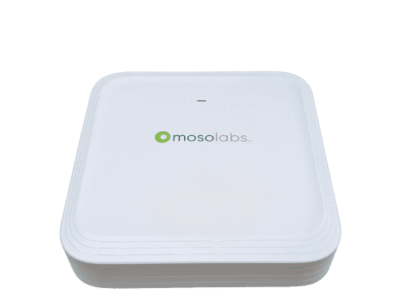
RISC-V chip to drive next generation app store of hearables
US startup Sonical Sound Solutions is launching an ‘app store’ for headphones and hearables at CES this week ahead of a high performance, low power RISC-V chip.
The apps run on Sonical’s operating system, called CosmOS, that runs on both RISC-V or ARM-based chips.
“We spoke to hundreds of product companies and we found that there are dozens of features that companies want to put into their products and none of them can make them so we need apps so that third party developers can unlock these features, not just spatial audio but so many other things,” said Gary Spittle, CEO of Sonical told eeNews Europe.
Read the exclusive interview with Gary Spittle of Sonical here:
CEO interview: Sonical launches ‘app store’ for hearables
“We will show the full app store at CES and the first product not long after CES and then during 2023 there will be a handful of new products,” he said. “We’ve been filing patents like crazy.”
“CosmOS allows us to take apps from the cloud to the phone and push them to devices. We are starting with ear products and moving to other things, smart microphones, speakers, biometric monitoring and so on,” he said.
Sonical is working with French design house Dolphin Design on a 22nm design for hearables.
“We are targeting 22nm and we have a huge amount of compute at our fingertips, we can stream audio and download apps simultaneously,” said Spittle. “There’s two designs in the mix. One is on a test chip but we are not fixed yet and evaluating it. It comes down to support. We haven’t made our final choice yet,” he said.
The multiradio chip uses Bluetooth as the initial link but then moves to other technologies such as WiFi or UltraWideBand (UWB), making use of the charging case.
“We use Bluetooth for the basic interoperability and we piggyback on that,” he said, “It could be WiFi or UWB or something custom. The charging case will be very smart so I’m less dependent on the phone and that could be UWB streaming from the cloud for example.”
“We use the apps to make our platform attractive in order to sell the chip and license the OS onto the chip and other chips and then we charge a license fee to the developers for the ease of use,” he said. “Right now the first customers will have a walled garden for their products but smaller developers can use App store or Google Play.”
 If you enjoyed this article, you will like the following ones: don't miss them by subscribing to :
eeNews on Google News
If you enjoyed this article, you will like the following ones: don't miss them by subscribing to :
eeNews on Google News






